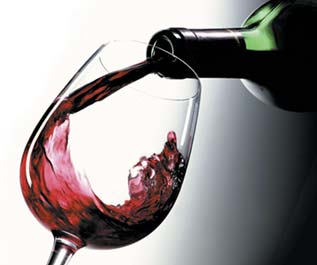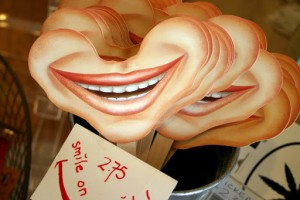“Beer is proof that God loves us and wants us to be happy.” This quote, uttered by Benjamin Franklin, is closer to the mark than most Christians may realize. Growing up in a fairly conservative evangelical tradition (albeit in Las Vegas!), I was basically raised to believe that alcohol was evil. Period. The Bible was clear on the issue, I was told. Yet, as the grip of dispensational fundamentalism began to loosen on my thinking as I matured in the faith, the role of alcohol in the Bible began to appear entirely foreign compared to how I had been raised to think. Furthermore, I soon realized that my prejudice against alcohol was a particularly American one. Christians in Europe and the UK are simply not influenced by the same cultural stigma. For instance, the ‘pub culture’ beyond the pond is so pervasive that it would be normal for church members to visit the pub together after a Sunday service rather than the rebellious exception. Although this would not fly for most congregations in America, it meets no condemnation from the Bible. The biblical assessment of alcohol appears, at least to this writer, to be overwhelmingly positive. Granted, the Bible remains silent on beer and other alcoholic drinks (and I for one prefer craft beer to wine), but there is a clear principle that emerges: Don’t Get Drunk! This first installment on alcohol in the Bible will focus on the OT with a subsequent entry on the NT to follow next week.
At its most basic level, wine is a symbol of joy in the OT (Ps 4.7; 104.15; Ecc 10.19). In the Song of Songs, wine-related imagery is used as part of sexual expression (Song 1.2, 4; 4.10; 5.1; 7.2, 9; 8.2). All the distractions that threaten intimacy (‘the foxes’) are to be kept clear of the ‘vineyard’ (Song 2.15). A further element of the symbolism in the OT, is that Israel herself is even described as God’s vineyard (Ps 80.8, 14; Isa 5.1-5, 7; Jer 2.21; 12.10; Ho 10.1).
Yet when alcohol is abused it can lead to terrible consequences (cf. the drunkenness of Noah and Lot in Gen 9.20-29; 19.30-38). Drunkards are consistently portrayed as fools who stagger and engage in bad behavior (Deut 21.20; 32.30-33; Jdg 12.25; 1 Sam 1.13-15; Ps 60.3; 69.12; 107.27; Prov 26.9-10; Ecc 10.17; Isa 5.11-12, 22; 19.14; 22.12-14; 24.20; 56.9-12; Jer 23.9; Ezek 23.42; Ho 4.10-11; Am 2.8; 6.6; Nah 1.10; 3.11; Hab 2.5, 15-16). Many kings and warriors were also duped into defeat while intoxicated (1 Sam 25.36-38; 2 Sam 11.13; 13.28-29; 1 Kgs 16.8-10; 20.16-21; Dan 5.1-4, 23). This is perhaps why the OT uses imagery of drunkenness to describe God’s wrath against the unrighteous, since swift judgment will come upon those who do not expect it (Ps 75.6-8; 78.65; Isa 29.1-10; 49.26; 51.17, 21; 63.3, 6; 65.11-12; Jer 13.12-14; 25.15, 27; 48.26; 51.7, 39, 57; Lam 1.15; 4.21-22; Ezek 23.33; 39.19; Joel 3.1-3, 13; Obad 16; Mic 2.11).
There are also a few instances where abstinence from alcohol is described. Yet, contextually it is quite clear that these prohibitions are not normative, but are for a particular task. This applies to priests while participating in the cultic worship of Israel (Lev 10.8-9; Ezek 44.21). Likewise, the Nazarites while taking the vow of separation were to abstain from wine (Num 6.1-4; Am 2.12), yet they could enjoy wine upon completing the vow (Num 6.20). While Samson’s mother was pregnant she was charged not to drink wine (Jdg 13.4, 7, 14). Treading the wine-press and bringing wine into Jerusalem was prohibited on the Sabbath (Neh 13.15-18). Interestingly, the Rechabites were tested with drinking wine, but they abstained because their father commanded them not to, along with other things, like owning a house (Jer 35.1-19). Daniel chose to abstain from wine and meat while in exile in order to make a theological point to the Babylonians (Dan 1.5, 8, 15-16). Lastly, while Daniel was mourning he fasted from wine and other delicacies for three weeks (Dan 10.3).
Essentially, the OT teaching regarding the consumption of alcohol is that it is normal and acceptable as long as it does not lead to a characteristic lifestyle of drunkenness. This tension between the abuse and proper use is nowhere more clearly demonstrated than in Israel’s ‘Wisdom Literature,’ which reflects the same tension in regards to gluttony, slothfulness, and wealth. One very instructive passage in this regard warns that one should avoid the company of ‘drunkards and gluttons’ (Prov 23.20). The pairing here suggests that we are dealing with over-indulgence, not mere usage. Thus, we will find Wisdom texts which speak against the abuse of alcohol: ‘Whoever is lead astray by wine or strong drink is not wise’ (Prov 20.1), and those who ‘tarry long over wine’ will see strange things and utter perverse things (Prov 23.30-35), and lastly, that the wicked drink ‘the wine of violence’ (Prov 4.17). Yet, if one honors the Lord, there will be an abundance of grain and wine (Prov 3.9-10). Furthermore, Wisdom herself is personified as one who summons fools to come to her and partake of her bread and wine (Prov 9.1-6) as opposed to fellowshipping with ‘Folly’ (Prov 9.13-18). Interestingly, at the end of Proverbs we see an element of shrewdness when it comes to alcohol, but nothing close to prohibition. King Lemuel was taught by his mother to be leery of the effect of alcohol on kingly judgments (Prov 31.4-5), yet he is to give strong drink and wine to the poor and those perishing (Prov 31.6). And what’s more, every evangelical’s ideal woman (the Prov 31 woman) is herself a Wine-O (Prov 31.16).
One last note on Wisdom Literature comes from Ecclesiastes. In this book, wine is coupled along with many other things considered vanity ‘under the sun’ (Ecc 2.1-11). Of course, the problem of vanity in Ecclesiastes is that a ‘Beyond the Sun’ perspective needs to be re-cultivated so that everything is in its proper alignment with God at the center. In fact, Ecclesiastes never states that alcohol is inherently bad, but rather the opposite (Ecc 9.7).
There are also many casual references to wine throughout the OT with little evaluation made (Gen 27.25; Deut 14.26; Judg 19.19; Ruth 2.14; 3.7; 1 Sam 10.3; 16.20; 25.18; 2 Sam 16.1-2; 1 Chr 12.40; 27.27; 2 Chr 2.10, 15; 11.11; 32.28; Neh 5.1-13, 18; Esther 1.7, 10; 5.6; 7.2, 8; Job 1.13-18; 32.19; Ps 69.21; Ezek 27.17, 19; Ho 2.12). The nonchalant nature of many of these passages points to the role of wine in the fabric of every-day life for ancient Israel.
Wine and strong drinks were often used as part of libations and drink offerings done in the Tabernacle and the Temple (Ex 29.40; Lev 23.13; Num 15.5, 7, 10; 18.12; 28.7, 14; Deut 12.17; 14.23; 18.4; 1 Sam 1.24; 1 Chr 9.29; 31.5; Ezra 6.9; 7.21-24; Neh 10.37, 39; Neh 13.5, 12). Interestingly, when the Law was read after the exile, Nehemiah commanded the people to eat fat and drink wine because it was a holy day to the Lord (Neh 8.10). One wonders why God would prescribe the use of alcoholic beverages in these ways if they were inherently evil. As Jotham said in his parable regarding Abimelech in Judg 9.13, wine ‘cheers God and men’ (which, in relation to God, is most naturally understood in the cultic sense as a reference to drink offerings).
Within the covenantal structure of Israel, there would be blessing for obedience and curses for disobedience. What is most striking about the contrast is that the presence and abundance of wine is associated with the blessings of the covenant (Deut 7.13; 11.14; 32.10-14; 33.28; 2 Kgs 18.32; Isa 36.17; Jer 40.10-12; Ho 2.8), and the corollary is that there would be a lack of wine as part of the curses of the covenant (Deut 28.39, 51; 29.6; Isa 1.22; 16.10; 24.1-13; Jer 48.33; Lam 2.12; Ho 2.9, 22; 7.5, 14; 9.2, 4; Joel 1.5-7, 10; Am 5.11, 17; Mic 6.15; Zeph 1.13; Hag 1.11; 2.14-17). The blessing of wine is even included in some of the Patriarchal blessings (Gen 27.28, 37; 49.8-12). Bread and wine were also present when the priest-king Melchizidek blessed Abram (Gen 14.8).
Perhaps the most intriguing element of the OT regarding alcohol, which provides a fitting conclusion to this post, is the abundance of wine that is depicted in the eschatological era when God restores Israel and all creation (Isa 25.6; 62.6-9; 65.8, 21; Jer 31.5, 12; 32.15; Ezek 28.26; Ho 14.7; Joel 2.19; Zech 9.14-17; 10.4-7). Israel is summoned by God to ‘come and buy wine and milk without money’ as a portrait of the eschatological era of salvation and covenant renewal (Isa 55.1). In this time, vats will burst forth with new wine (Joel 2.24), and the mountains will be dripping with sweet wine (Joel 3.18; Amos 9.13-14). For an agricultural society, such as Israel, the impact of these images would not have been lost. Certainly the use of this imagery is meant to convey that there will be an abundance of resources in the eschaton as well as immeasurable joy, but we should not stop there. These texts convey implicitly the value of alcohol in God’s economy, when used properly, of course.






45 Comments
Leave your reply.